From negative results to a very positive present and a bright future, Bentley is setting sales and profit records.
During the launch of the new GT Speed — its fastest production car in 102 years of history — we had the opportunity to interview British brand executive director Adrian Hallmark.
In this conversation Adrian Hallmarlk not only told us how it was possible to turn the situation around, but also revealed the strategy for the immediate and medium-term future.
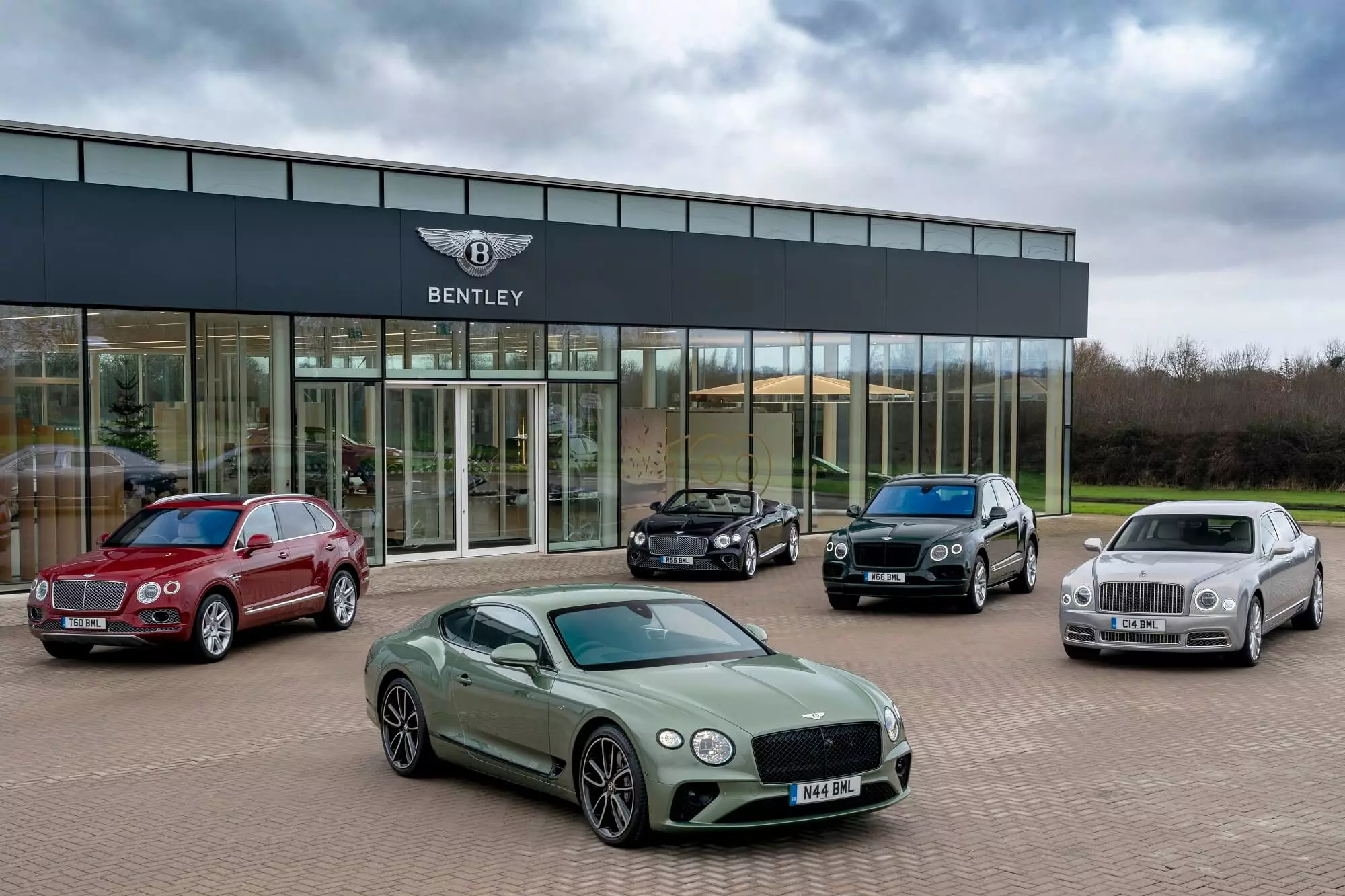
a year of records
Car Ratio (RA) — You must be quite satisfied that the first half of 2021 closed with the best results for Bentley and the good indicators remain. The main problem now is that it cannot meet demand… Is there any influence from the shortage of chips?
Adrian Hallmark (AH) — We were fortunate to be protected by the Volkswagen Group, which allowed us not to be affected by the lack of silicon chips. The problem is that the Crewe factory was designed in 1936 to manufacture 800 cars a year and we are close to 14 000, very close to the limit.
All models are now released and this sets up a completely different scenario from what existed two years ago, when we couldn't produce new cars. For example, we've been 18 months without the Flying Spur.
On the other hand, we also have many more engines, including the hybrid versions of the Bentayga and Flying Spur. Only in this way was it possible to achieve these financial and commercial results.
RA — Is the current 13% profit margin something that makes you comfortable or is it still possible to go further?
AH — I don't think the company has yet reached its full potential. 20 years ago, Bentley began taking steps to create a different business model with the Continental GT, the Flying Spur and later the Bentayga.
Everything is working fine, but if I look at Ferrari or Lamborghini, their net margin is much better than ours. We've spent a lot of time restructuring the business and it's the first time we've achieved such high profit margins.

But if we consider the architectures we are building our cars on, we should and will do better. Not at the expense of mere price increases or changing the positioning of our cars, but a combination of greater cost control followed by more technological innovation will allow us to improve.
The Continental GT Speed is a great example: we thought it would be worth 5% of the Continental range's sales (500 to 800 units per year) and will likely weigh 25%, with a significantly higher price and profit margin.
RA — Is this a goal that you defined or does it have to do with the sort of Damocles sword that the Volkswagen Group hovered over Bentley when the numbers weren't positive two years ago?
AH — We don't feel the pressure on a daily basis, even if it always exists in an underlying way. We have a five- and ten-year plan where we set targets for restructuring, profit and everything else.
We've heard the occasional comment “it would be nice if they could get a little more” from Volkswagen management, but they're asking us for a few more percentage points, which is acceptable, of course.
When the so-called metaphorical sword of Damocles hung over us, we were unable to sell cars in half of the world's markets, we only had two of the four models in the current range, and we were in the worst situation the brand could be.
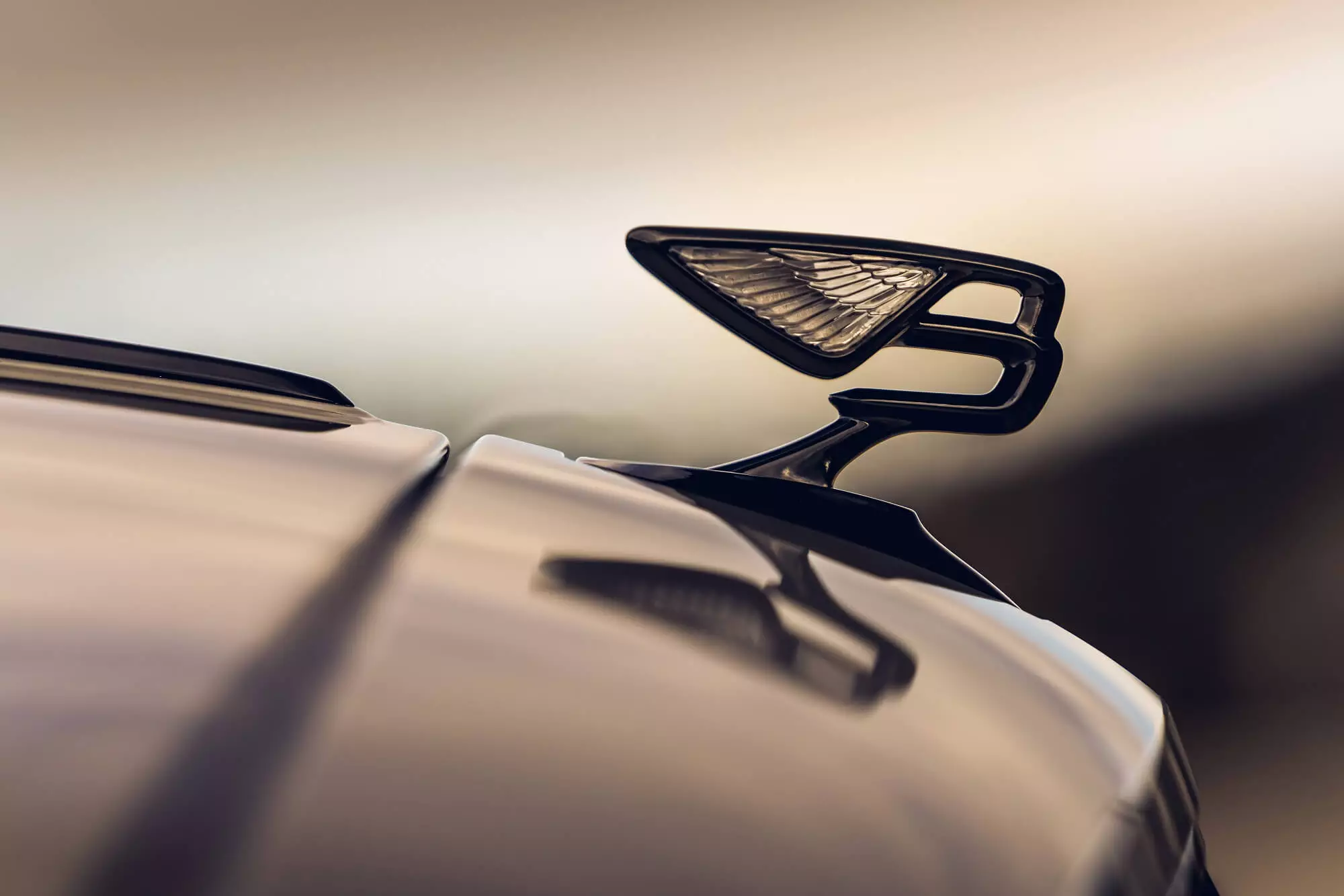
If you read the Group's latest statements, they can hardly believe the integrity of the turnaround we've achieved at Bentley and are fully supporting the strategic vision we have for Bentley: an absolute commitment to fully electrify the brand by 2030. that.
RA — Your brand has had balanced sales in the most important regions of the world, USA, Europe and China. But if Bentley's sales in China continue to gain expression, it could run the risk of being held hostage by this market, which sometimes manages to be volatile and irrational. Is this a concern for you?
AH — I've been to companies that are significantly more dependent on China than Bentley. We have what I call a “symmetrical business”: so far this year we've grown 51% in all regions and each region is 45-55% higher than last year.
Discover your next car
On the other hand, our margins in China are practically the same as anywhere else in the world and we keep a close watch on prices, also because of currency fluctuations, to avoid a large price differential between China and the rest of the world. world to avoid creating the conditions for a parallel market.
So we're very lucky that we didn't go overboard with China and now we have a thriving business there. And, for us, China is not at all volatile; in terms of image, customer profile and perception of what Bentley represents, it is even closer to what we aspire, even compared to Crewe. They understand us perfectly.
Plug-in hybrids are bet to maintain
RA — Were you surprised that Mercedes-Benz announced that it is going to divest itself in plug-in hybrids (PHEV) when most brands are betting heavily on this technology?
AH — Yes and no. In our case, until we have our first electric vehicle (BEV) plug-in hybrids will be the best we can aspire to. And the truth is, PHEVs can be significantly better than a gas-powered car for most people, if used correctly.
Of course, for those who travel 500 km every weekend, the PHEV is the worst possible choice. But in the UK for example, the average distance traveled daily is 30 km and our PHEV allows an electric range of 45 to 55 km and over the next two years it will increase.
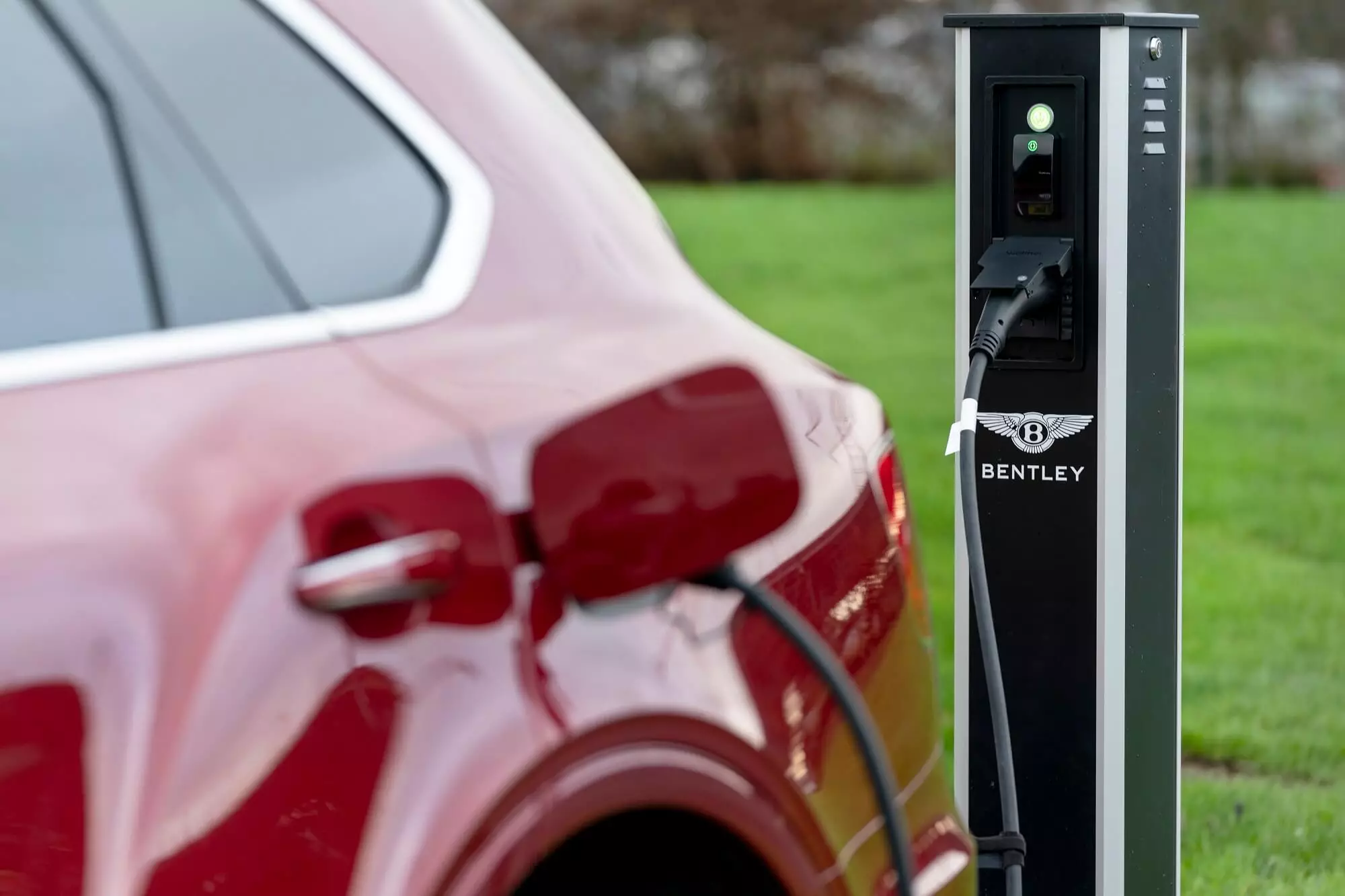
In other words, in 90% of trips, you can drive without any emissions and, even if the engine is started, you can expect a reduction in CO2 of 60 to 70%. If the legislation does not grant you benefits for driving a PHEV you will continue to benefit from the lower energy costs.
Mercedes-Benz can do what it thinks best, but we are going to bet on our PHEV so that they can be worth 15 to 25% of sales in the Bentayga and Flying Spur ranges, respectively, two models that are worth around 2/3 of our sales.
RA — For some brands that already offer more than 100 km of electric autonomy, customer receptiveness is much greater. Considering your brand's user profile, this seems to be less relevant…
AH — As far as the PHEVs are concerned, I went from a skeptic to an evangelist. But we need 50 km of autonomy and all the advantages are around 75-85 km. On top of that, there is redundancy, because 100 km will not help in a 500 km trip, unless it is possible to make quick charges.
And I think fast charging PHEVs will change the whole scenario, because they will allow you to add 75 to 80 km of autonomy in 5 minutes. This is technically possible as we see that a Taycan is capable of carrying 300 km in 20 minutes.

It will also be possible to make a 500 km trip with 15% being electrically supported, then a quick charge and, in the end, a much lower carbon footprint.
I charge my Bentayga Hybrid every 36 hours, ie two to three times a week (at work or at home) and refuel it with gas every three weeks. When I had a Bentayga Speed, I used to refuel it twice a week.
RA — So we can infer that Bentley is going to launch PHEV with fast charging capability…
AH — It won't be available in the current engine range, but our next generation PHEV definitely will.
RA — Your investment in biofuels was recently demonstrated on a slope climb at Pikes Peak, in the United States. Does it represent your strategy to guarantee a second life for all Bentleys around the world or is it complicated to convert these engines?
AH — Best of all, no conversion is required! It's not like leaded or unleaded gasoline, it's not like ethanol… it's absolutely possible to use modern e-fuel without needing to retrofit current engines.
Porsche is leading the investigation in our Group, but that's why we're also on board. It's viable, and there will be a need for liquid jet fuels for at least the next few decades, probably forever.
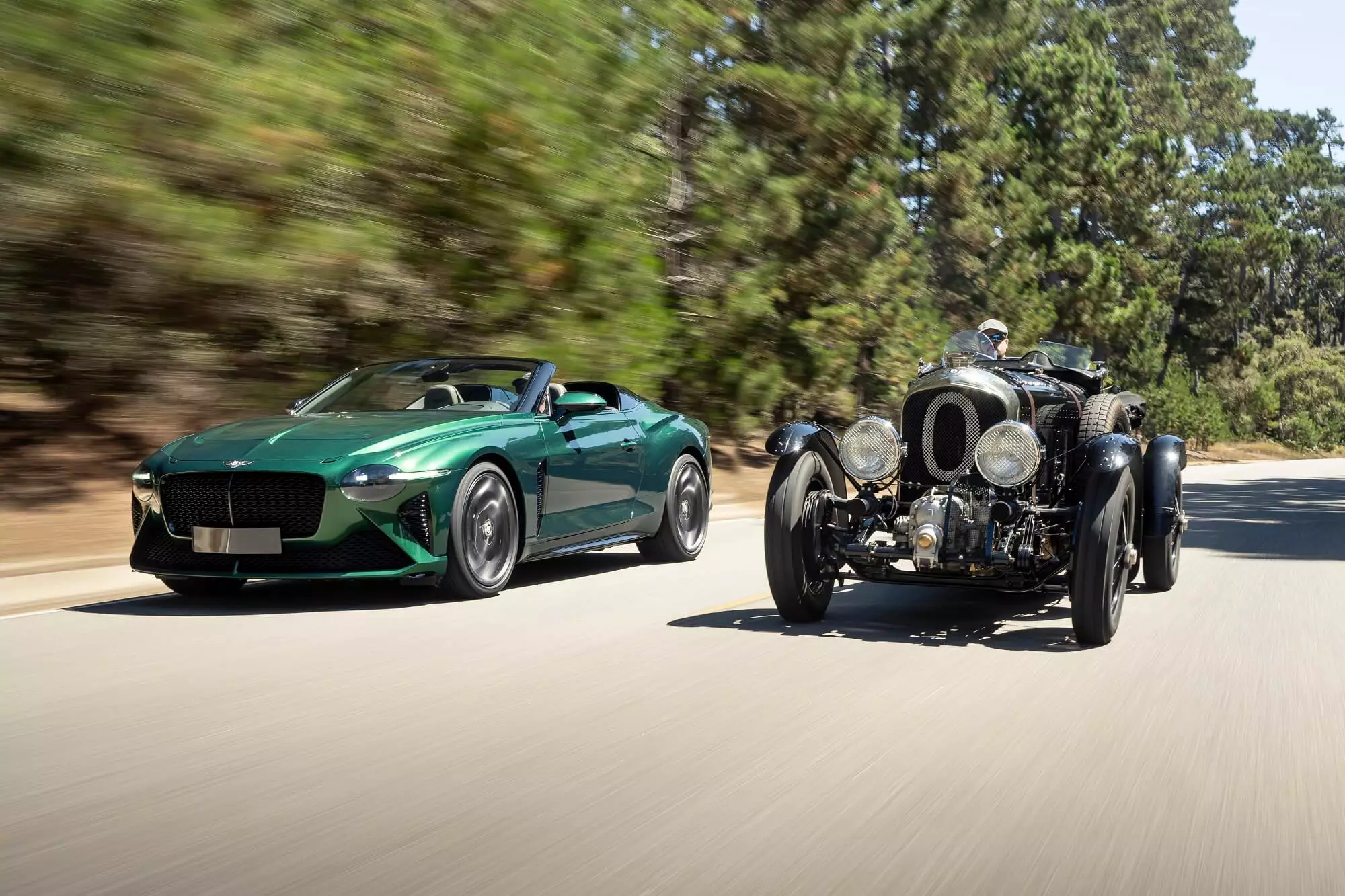
And if we consider that more than 80% of all Bentleys manufactured since 1919 are still rolling, we realize that it can be a very useful solution. And not just for classic cars: if we stop building gasoline cars in 2030, they'll last about 20 years after that.
A 2029 car will still be on the road in 2050 and that means the world will need liquid fuels for several decades after combustion engine production ends.
The project is being led by a Porsche joint venture in Chile, where the e-fuel will be developed and produced (because that's where the raw materials, the installations and the first innovations will take place and then we will move it geographically).
More Audi than Porsche
RA — Bentley got out from under the Porsche “umbrella” and moved to Audi's. Has the association between Porsche and Rimac advised you to change Bentley's strategic link from one Group brand to another?
AH — With the exception of the Bentayga, all our cars are based on the Panamera, but only 17% of the components are common. And even some of these components were extensively redesigned, like the PDK gearbox, which took 15 months to work properly in a luxury car.
A sports car and a limousine generate different expectations from customers, who are also different. The problem is that we received these technologies at a stage when they were already developed, although we placed orders according to our needs, the truth is that we were “late for the party”.
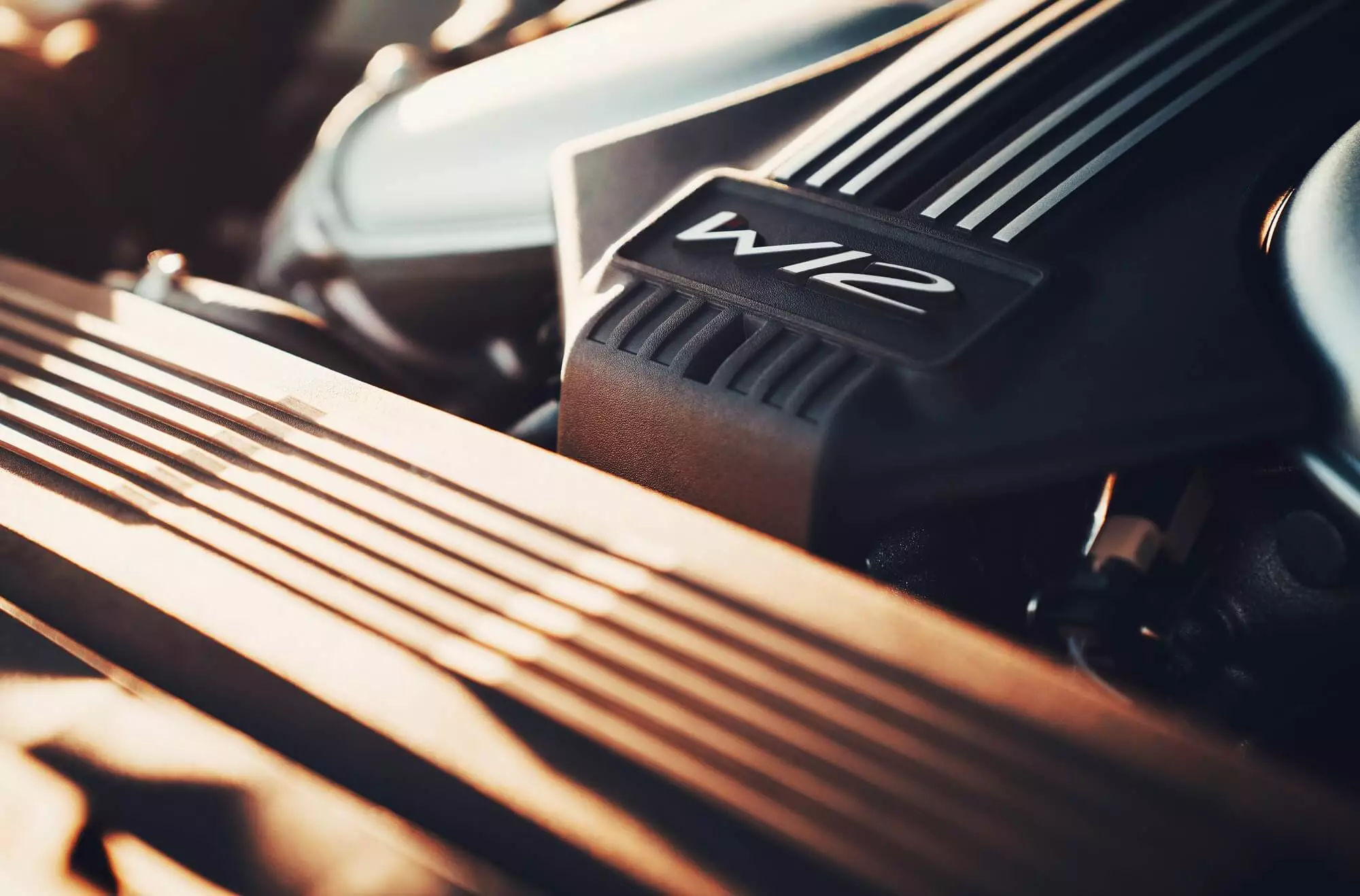
We had to spend months and millions to do the necessary adaptation work. Looking to the future, our electric cars are going to be mainly made on the PPE architecture and we've been involved in the project from day one, to put in all the attribute requirements so that when development is complete we don't have to take it apart and redo everything.
Within 5 years we will be 50% Porsche and 50% Audi and within 10 years possibly 100% Audi. We are not a sports brand, we are a fast moving luxury car brand whose attributes are much closer to those of Audi.
We just need to improve our performances a bit and respect our premium DNA. That's why the Porsche-Rimac business doesn't make sense to us, with its focus on hyper-sports models.
RA — The luxury used market is “heating up” and, at least in the United States, Bentley has had sensational results in recent months. Are you going to define an ordering strategy for that customer globally?
AH — The used car market is like the stock market: everything revolves around supply/demand and the aspiration factor. Our dealers are desperate to buy cars from customers who might be interested in selling because there is really an explosion in demand.
We have a certified system with a strict quality control process along with a one to two year back-up warranty if the car is out of factory warranty.
Although they are used daily, they are not high mileage cars and are carefully cared for by the previous owner. So it's a very safe way to close a
good deal.
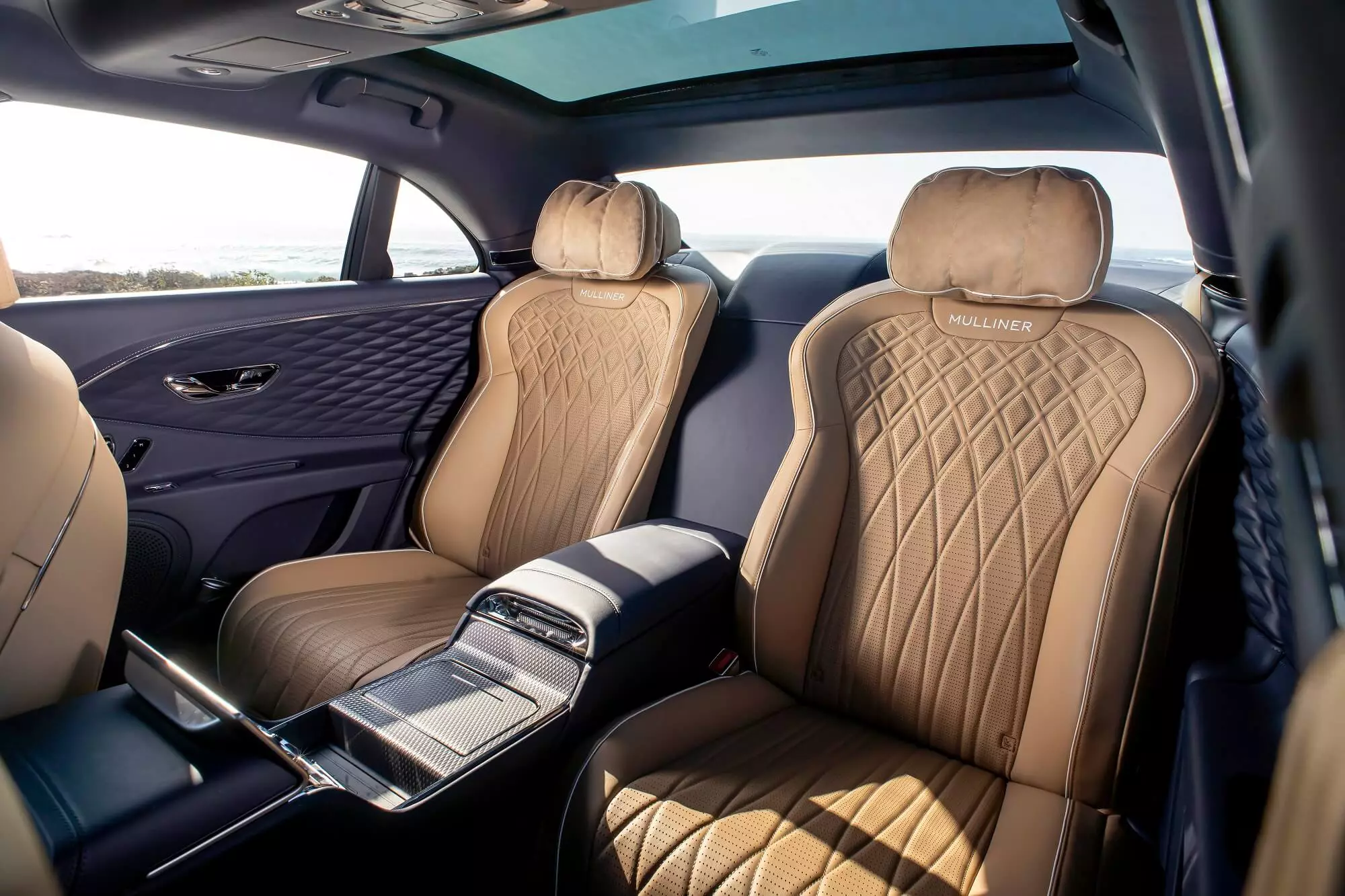
RA — What is the current status of the impact of Brexit on Bentley?
AH — Well… now we have to go to the long lines for passports at airports. More seriously, I have to congratulate our team because if you were to join this company today, I would say that nothing happened and that is only possible because we spent two and a half years preparing ourselves.
This is despite the fact that 45% of the pieces come from outside the UK, 90% of which are from continental Europe. There are hundreds of suppliers, thousands of parts and each one has to be well managed.
We used to have two days of parts stock, then we got to 21 and now we're down to 15 and we'd like to reduce it to six, but that won't be possible due to Covid. But this has nothing to do with Brexit, of course.
RA — You have just “shrink” your company. Is the cost structure where it should be?
AH — The simple answer is that there is no need or plan for drastic cost reduction, just a little more optimization. In fact, it's the first time in my career that I've admitted that we may have gone too far in downsizing in some areas, not least because we have electric cars, autonomous cars, and cybersecurity that require huge investments.
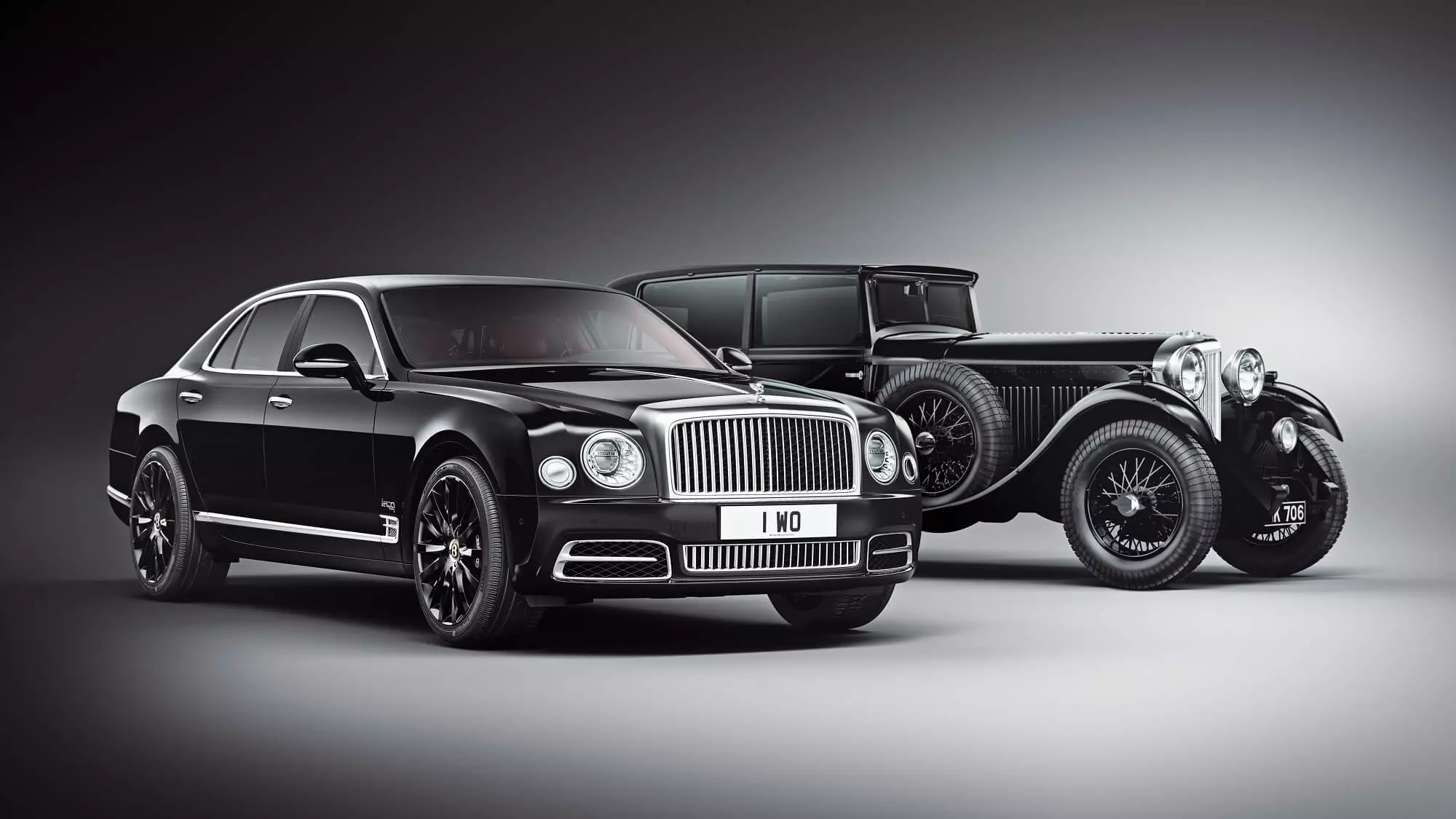
About 25% of our people left the company last year, and we've reduced car assembly hours by 24%. We can now manufacture 40% more vehicles with the same direct people and 50 to 60 temporary contractors instead of 700.
The increase in efficiency is colossal. And we're working to make another 12-14% efficiency improvement over the next 12 months, but no cuts like that.
RA — Is there a ceiling above which you don't want to go in terms of production/sales volume for the sake of exclusivity?
AH — We are not aiming at volume, but at increasing the range of models that will necessarily lead to higher sales. We are limited by factory and body supply.
We're working four shifts on the painting, seven days a week, there's not even time for maintenance. In 2020, we set a new annual sales record of 11,206 cars, and we could probably peak at 14,000, but definitely below 15,000.
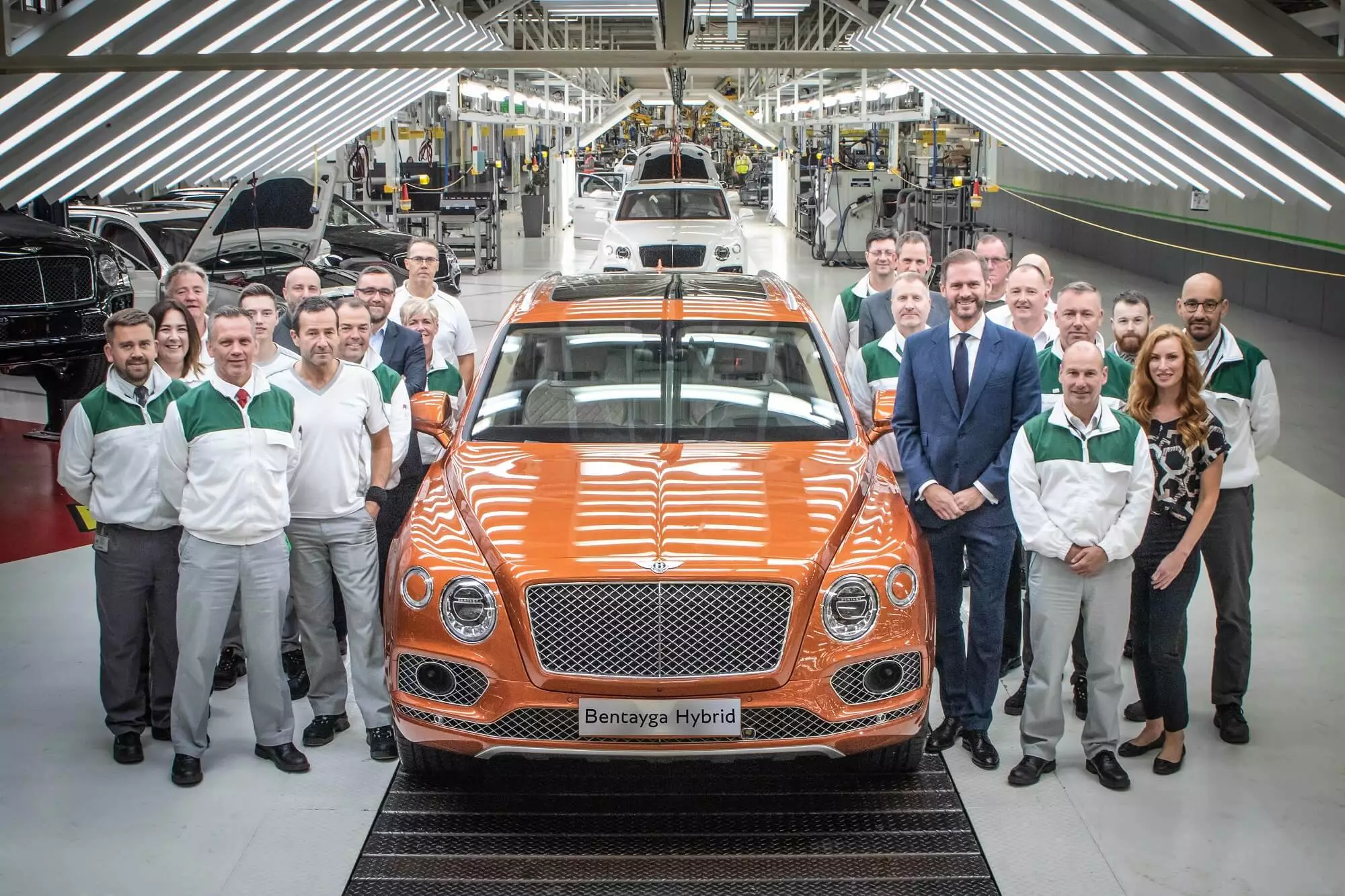
It was a long road, which took us from 800 cars/year when I joined the company in 1999, to 10 000 just five years after the launch of the Continental GT in 2002.
When we reached 10,000 cars in 2007, total global car sales above €120,000 (adjusting for inflation) was 15,000 units, which means that we had a 66% market share in that segment (in which Ferrari, Aston Martin or Mercedes-AMG compete).
Today, this segment is worth 110 000 cars a year and if we had 66% of that “cake” we would be making 70 000 cars a year. In other words, I don't think we're stretching the
rope. But we have an enviable position.
RA — He has held positions of absolute leadership at Porsche and Bentley. Are the customers of the two brands similar?
AH — When I moved from Porsche to Bentley, I read all the information there was about customers to understand the differences in profile, future demographics, etc. And I found several things in common.
The owner of a Porsche is interested in collecting cars, a little art, sailing and football (it's normal to have a box in the stadium). The owner of a Bentley has more expensive tastes in art, cars, yachts and he likes football… but he usually owns the club, not a box.
